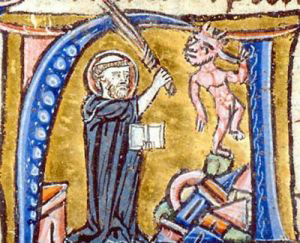Why Catholics Owe Assent to Fiducia Supplicans
EDIT (12-28-2023): To be extra specific, documents themselves do not hold status as either magisterial or not -- only specific sentences or phrases in documents require assent (see Humani Generis 20 for evidence of this).
Herein, I want to offer some thoughts on the recent document of the Dicastery of the Doctrine of the Faith, and signed by P. Francis, entitled “Fiducia Supplicans” (below referred to as “FS”) and the recent interview that Cardinal Fernández, the head of said Dicastery, gave with The Pillar:
It seems clear in Catholic ecclesiology [as I demonstrated in my blog post dated December 17, 2023 and linked below (ie. Praestantia Scripturae 4 and Donum Veritatis 18, which is made clearer by the concluding paragraph of the 1998 Professio Fidei)] that a document of the DDF approved by the Pope shares in the Pope's ordinary, papal Magisterium, and we Catholics have a duty to interpret these non-definitive magisterial documents in light of the greater tradition and teachings, and to "assent [to them] with religious submission of intellect and will." FS is a non-definitive (non-infallible/reformable) document of the DDF, approved by the Pope. It, therefore, shares in the Pope's ordinary magisterium, and Catholics owe it said assent.
Cardinal Fernández states in said interview (his answer to Question 5) that FS is clear on the assertion that the doctrine of marriage has not changed, and this is apparent to those who interpret FS without bias and in accord with the perennial teaching of the Church:
"…For those who read the text serenely and without ideological prejudices, it is clear that there is no change in the doctrine on marriage and on the objective valuation of sexual acts outside the only [kind of] marriage which exists — male-female, exclusive, indissoluble, naturally open to the generation of new life)."
This should give many Catholics reason to pause. Are we interpreting FS in light of the greater body of Catholic Tradition – with the “hermenutic of continuity” made so famous by P. Benedict XVI in his December 22, 2005 address? Or are we seeking to utilize a “hermenutic of discontinuity” or rupture when interpreting FS?
One of the key elements of FS which has caused an immense controversy is the document's use of the word “couples.” I want to offer an opinion which seeks to utilize the hermenutic of continuity as regards the document's use of this word.
It is true, at least in colloquial American English, the Word “couple” is often used to denote a relationship between two persons. But what if, and hear me out, that "couple" is meant literally in FS? What if it literally means here "two" of something? A couple of oranges. A couple of chairs. A couple of people. Is this definition and use of the word “couple” not the way to harmonize the use of this word within the overall Tradition?
If "couples are blessed" and "not the union" as Fernández and FS say, then the only way to understand "couples" in the larger context of Catholic Tradition is by understanding the word meant literally as a "couple" of nouns -- in this case, persons. Otherwise, the statement is oxymoronic.
Additionally, as I stated above, we have a duty to interpret FS in light of the greater Tradition. We also owe assent to FS as it is a magisterial document (via the sources cited).
Furthermore, I have heard some claim that they are done giving P. Francis and/or Cardinal Fernández the “benefit of the doubt.” To such an assertion, I say:
This is no longer simply a matter of giving P. Francis and/or Fernández the benefit of the doubt. Documents of the ordinary, papal magisterium require a Catholic's "religious assent of intellect and will" (see the documents cited above, as well as Humani Generis 20, and Lumen Gentium 25). The evidence of this is overwhelming, and has been clear for AT LEAST the last 150 years, by my research.
This is not about "giving the benefit of the doubt" to a particular person. This is about "giving the benefit of the doubt" AND assent to the Magisterium (the only authoritative interpreter of both Scripture and Tradition; ie. Dei Verbum 10) of the One Holy Catholic and Apostolic Church. If one is not going to assent to the Magisterium, then they are by default in dissent. And public dissent against the Magisterium (as seen in the above cited Praestantia Scripturae 4 of P. Pius X) is a sin constituting of grave matter.
The only exception to this required assent is described in Donum Veritatis 31, but it requires the person (and only a person very well-trained in theology) to quietly withold assent, making known their concerns privately to the proper ecclesiastical authorities. They are to suffer for the truth, but in silence and obedience. This is only in extremely rare cases where such a person has such theological training. I am certainly not one of these persons to whom the exception applies.
I will be an obedient son of the Church. This is not blind obedience. Blind obedience does not give reasonings; this is reasoned, faithful obedience. If you agree, or are enticed to agree, then follow these directives of the Magisterium. Read the documents I cite in my referenced blog post for yourself. Do your own additional research. Trust and have faith that Jesus Christ works in His Church, and that He will not let Her lead His children astray.
References:
Fiducia Supplicans:
Interview with Card. Fernandez:
https://www.pillarcatholic.com/p/cardinal-fernandez-same-sex-blessing
My blog post dated Dec. 17, 2023 compiling documents which demonstrate the necessary assent required of a Catholic to even non-definitive documents of the Magisterium: https://www.parkerzurbuch.com/2023/12/assent-to-non-definitive-magisterium.html?m=1
P. Benedict XVI in his December 22, 2005 address:
Dei Verbum:


Comments
Post a Comment